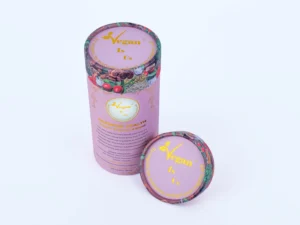In recent years, a growing number of UK consumers have begun to prioritise plastic-free health products. This shift is driven by an increasing awareness of environmental issues, health concerns, and a broader cultural shift towards ethical and sustainable consumerism. Whether it’s health supplements, skincare, or personal care items, the demand for plastic-free alternatives is rising. Consumers are increasingly aware of the long-term effects of plastic on the environment and their health, and as a result, many are choosing products that align with their values.
In this blog, we will explore the key reasons behind this change and why more UK shoppers are making the switch to plastic-free health products.
1. Environmental Responsibility
Plastic pollution is one of the most pressing environmental issues today. With millions of tonnes of plastic waste entering landfills and oceans every year, many UK consumers are choosing to reduce their plastic footprint. Packaging accounts for a significant portion of global plastic waste, and products packaged in plastic contribute to this growing issue.
By choosing plastic-free health products, UK consumers are directly reducing the demand for single-use plastics. These products often come in sustainable packaging, such as glass, metal, or biodegradable materials, all of which have a far lower environmental impact compared to plastic. Consumers who are committed to reducing their plastic consumption are more likely to support brands that offer eco-friendly alternatives.
2. Health Considerations
While plastic packaging is convenient, it can also pose health risks. Studies have shown that plastics, especially those that are not BPA-free, can leach harmful chemicals into the products they contain. These chemicals, such as bisphenol A (BPA) and phthalates, have been linked to a range of health problems, including hormonal disruption, reproductive issues, and even cancer.
By choosing plastic-free health products, consumers can reduce their exposure to these harmful chemicals. Glass, metal, and biodegradable packaging are not only safer for the environment but also less likely to contaminate products with chemicals. This is especially important for health supplements, skincare products, and personal care items, which come into direct contact with the skin or body.
3. Ethical Consumerism
In recent years, there has been a notable rise in ethical consumerism. Consumers are increasingly choosing products that align with their values, prioritising sustainability, fair trade, and ethical production methods. Many consumers now consider the environmental and social impact of their purchases, with a growing interest in supporting businesses that are transparent about their sourcing and manufacturing practices.
Brands that offer plastic-free health products are often seen as more ethically responsible, as they demonstrate a commitment to sustainability and reducing waste. These brands tend to use ethical production methods, source ingredients responsibly, and take measures to reduce their carbon footprint. For consumers who prioritise ethical considerations, choosing plastic-free health products is an easy way to make a positive impact on the environment and society.
4. The Influence of Zero-Waste Movements
Zero-waste lifestyles are becoming increasingly popular, particularly in urban areas of the UK. This movement encourages individuals to reduce their waste output to as close to zero as possible, focusing on recycling, reusing, and composting. Health products are no exception to this philosophy, and many people are choosing plastic-free options to reduce the amount of waste they generate.
The growth of refill stations, packaging-free stores, and eco-friendly marketplaces has also made it easier for consumers to make sustainable choices. Zero-waste advocates often recommend plastic-free health products because they not only reduce waste but also encourage long-term sustainability. By opting for products with minimal packaging or reusable containers, consumers contribute to a more sustainable and responsible consumption cycle.
5. Government Support and Policies
The UK government has implemented a range of policies aimed at reducing plastic waste. These include measures such as the plastic bag tax, bans on single-use plastics, and incentives for businesses to reduce packaging. As a result, there has been a shift in public consciousness, with many UK consumers now actively looking for plastic-free alternatives to align with government initiatives.
Additionally, the government’s broader commitment to achieving net-zero carbon emissions by 2050 has sparked further interest in sustainable products. Consumers are motivated by the desire to support these initiatives, and as plastic-free health products become more widely available, the public is embracing them as a practical solution to reducing plastic consumption.
6. Support for Small and Independent Brands
Many small, independent health brands in the UK are at the forefront of the plastic-free movement. These brands often focus on sustainability, using eco-friendly packaging and ethically sourced ingredients. By supporting these small businesses, UK consumers not only get access to high-quality, sustainable products but also contribute to a more ethical and sustainable economy.
Independent brands are often able to innovate more quickly than larger corporations, allowing them to experiment with new packaging materials and production techniques. This means consumers can find plastic-free alternatives that are both effective and environmentally friendly, without compromising on quality or performance.
7. Aesthetic Appeal
Plastic-free health products are often packaged in a way that is visually appealing, with sleek glass jars, minimalist metal tins, and biodegradable packaging materials. This not only makes these products more attractive but also enhances the overall experience for the consumer. The appeal of plastic-free packaging goes beyond sustainability—it also offers a premium look and feel, which is highly desirable in health and wellness products.
In an age where the visual appeal of products is increasingly important, especially for social media influencers and eco-conscious buyers, plastic-free packaging can set a brand apart from its competitors. The aesthetic appeal of these products makes them more desirable and helps to create a stronger emotional connection with consumers.
8. Cost-Effectiveness Over Time
While plastic-free health products may have a slightly higher upfront cost, they often provide long-term savings. Many plastic-free products come in reusable containers or have refill options, which can reduce the need for frequent repurchasing. This makes them a more cost-effective choice in the long run.
For example, glass jars or metal tins can be reused multiple times, and refill stations allow consumers to purchase only what they need, cutting down on packaging waste and reducing costs over time. This long-term cost-saving approach appeals to budget-conscious consumers who are still committed to sustainability.
FAQ Section
1. Are plastic-free health products more expensive than plastic-packaged products?
While plastic-free health products may have a higher initial cost, they often offer long-term savings. Many come in reusable containers or have refill options, reducing the need for frequent repurchases. In the long run, plastic-free options can be more cost-effective.
2. How can I identify plastic-free health products?
Look for packaging that uses materials such as glass, metal, or biodegradable plastics. Many brands now advertise their commitment to plastic-free or sustainable packaging directly on their labels, making it easier for consumers to identify eco-friendly options.
3. Are plastic-free health products as effective as plastic-packaged ones?
Yes, plastic-free health products are just as effective as their plastic-packaged counterparts. The quality of the product is determined by the ingredients and formulation, not the packaging. Plastic-free packaging is simply a more sustainable choice.
4. How can I reduce my plastic consumption when shopping for health products?
Start by choosing products with minimal packaging, reusable containers, or those available in refillable formats. Many health stores and online shops now offer refill stations or bulk-buy options to help reduce plastic waste.
5. Are plastic-free health products available in all categories?
Yes, plastic-free options are available across a wide range of health products, including supplements, skincare, personal care items, and cleaning products. As the demand for sustainable products continues to grow, more categories are becoming plastic-free.
Finally!
The shift towards plastic-free health products in the UK is part of a broader movement towards sustainability and ethical consumerism. With concerns about environmental impact, health risks from plastic, and the growing popularity of zero-waste lifestyles, UK consumers are increasingly choosing eco-friendly alternatives. By making the switch to plastic-free health products, individuals can make a positive impact on both their health and the planet. To learn more about our values and discover practical tips for living a healthier, greener lifestyle, visit our blog. Join us in making a positive impact—on your health and the world around you.







